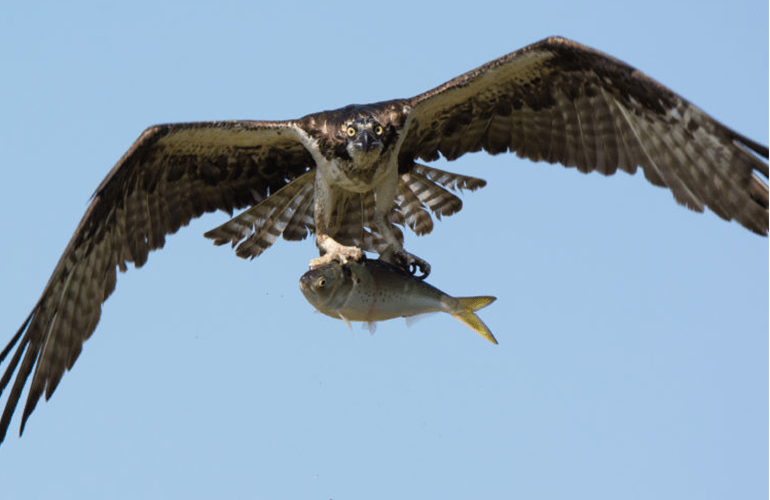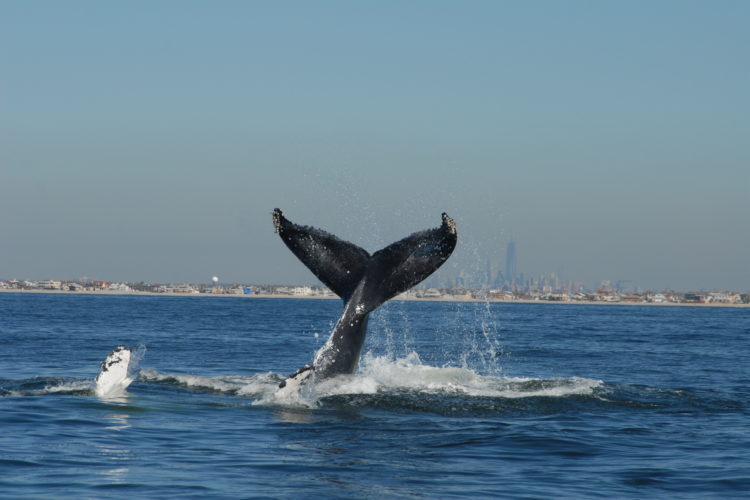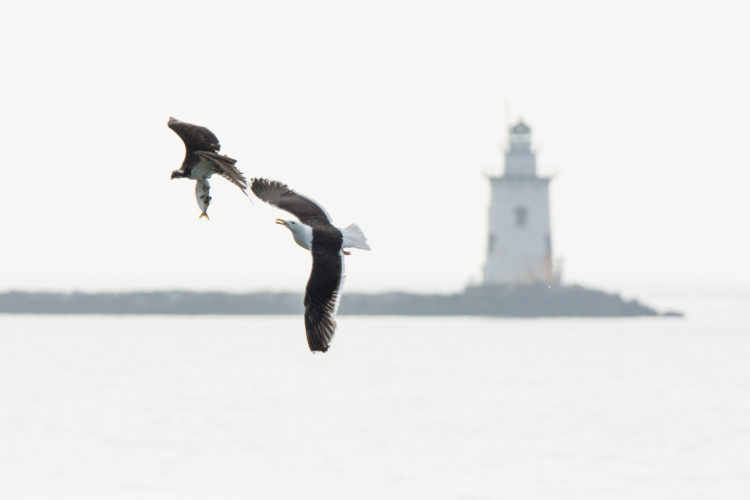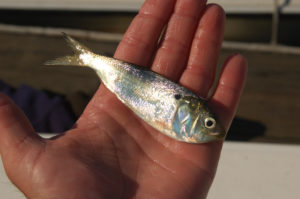We have much more to do and your continued support is needed now more than ever.
It’s tough being a menhaden
Little fish, big deal

To start, nobody can really agree on what to call them. The name menhaden comes from a Native American word that means “he who fertilizes”. They’ve been called American sardines because people once ate them like the more sought-after European sardine. The Dutch called them mossbunker – shortened to bunker in places like Long Island – because they resemble a fish from northern Europe. Others call them pogy. They’ve even been called bug-heads because of a parasite we get from time to time.
Lots of names. Not a lot of respect.

To make it worse, they’re pretty much the bottom rung on the food chain in the Atlantic Ocean. Sure, they’ve got plankton below them, but as far as vertebrates go, it’s menhaden and everything that eats menhaden. Just last week, schools of menhaden were were chased by a whale off Rockaway Beach, and then a similar event happened again a few days later in the Hudson River. Nowhere is safe for a menhaden these days.
It’s not just whales, either. Osprey, eagles, sharks, bluefish and striped bass all consider them a valuable food source. At least one author gave this fish the respect they deserved, calling them “The Most Important Fish in the Sea.” Although, it sure doesn’t seem like it sometimes.

In addition to all of the predators that chase them every day, menhaden have to deal with people, too. Around 22 percent, are caught for bait, and the rest are primarily harvested for uses such as fish oil, dog food and fertilizer. Unfortunately, over-harvest threatens not just menhaden, but the entire food chain above them, including other fish that make it to your dinner table like striped bass.
That’s why a few years ago, the Atlantic States Marines Fisheries Commission established the first catch quota for menhaden – reducing harvest by 20 percent. That’s led to bigger and more fish, and thus a boon for numerous predators. But, the commission has allowed that catch limit to creep back up, first by 10 percent, and then by another 6.5 percent.

Now, the commission is considering a new approach for setting those limits. The new approach will allow fisheries managers to assess menhaden’s overall impact on the food chain when setting catch quotas. This is where you come in. Menhaden are little fish, and can’t do much for themselves. But you can speak for them. Attend and testify at a committee meeting somewhere along the East Coast in the coming weeks. And if you can’t, please consider submitting comments to the commission.
These fish have enough on their minds between predators and commercial fishing operations, so please led them a hand.
Help Now




















